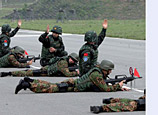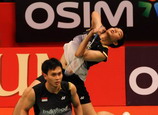
Edited and translated by Liang Jun, People's Daily Online
It has been more than 20 years since the Cold War ended. Some elements in Japan are still trying to circle the ideological wagons in an attempt to protect the enormous gains they made during that period.
In the six months since Shinzo Abe became the prime minister, Japan has increased its efforts on the diplomatic front. One trend merits attention: Japan’s repeated emphasis at diplomatic events on "common values", and the references to "freedom, democracy and human rights".
The Abe government has been trying to create an impression that the essence of issues between Japan and other countries revolves around disputes about values - an approach that is identical to the "value diplomacy" Abe pursued when he first came to power six years ago.
But what precisely is behind Abe’s intentions in the "value diplomacy" for which he shows such enthusiasm?
The prevailing trends on the international scene at the moment are multi-polarization and economic globalization. Encouraging peace, development, cooperation, and win-win are the order of the day. All nations - big and small, strong and weak - share ever-deeper interests and face common challenges. They should therefore respect each other and work together in pursuit of common development. Any attempt to create obstacles and set up confrontation between countries runs counter to the trend of the times.
But the Abe government appears determined to swim against this tide, and is trying to create fissures in an increasingly integrated global order by promoting "value diplomacy".
In essence, this "value diplomacy" represents a return to the outdated mentality of the Cold War. Its objective is to refute the international diversity of nations, and employ similarities and differences in ideologies, political systems and social systems as the standard by which relationships among nations are to be determined – in essence to re-divide the world into conflicting camps defined by politics and ideology.
Abe launched "strategic diplomacy" on coming back to power last December. There is nothing new in this. Already in his first term he had put forward the strategic concept of what he calls the "arc of peace and prosperity", by which he intended to split Eurasia along ideological lines.
Japan’s continued enthusiasm for a Cold War mentality is not accidental. The country developed its economy recovery under the tutelage of other countries, rebuilding itself from scratch, in less than 20 years, to become the world’s second largest economy. It was the main beneficiary from the Cold War, but this also resulted in the stagnation which has beset the thinking of Japanese ruling class in the years that followed.
Some elements in Japan are still trying to circle the ideological wagons in an attempt to protect the enormous gains they made during the Cold War.
Against a backdrop of stagnant economic growth and challenges to international cooperation, the international community must maintain a watchful eye on this new version of the "cold war" promoted by Japan, and put a stop to any moves likely to poison international relations.
Asian countries are embracing rare opportunities for development. They should see through the intentions of Japan’s ultra-rightists, actively resist "value diplomacy", and act together to safeguard regional win-win cooperation and common development.
Read the Chinese version: 警惕制造“新冷战”图谋
















 The Bund turns into beach as the temperature reaches high
The Bund turns into beach as the temperature reaches high


![]()
